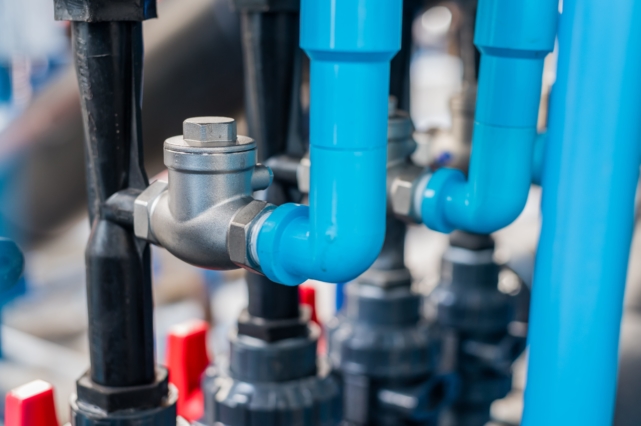
Is It Time for a Backflow Prevention Test?
Have you heard that Washington D.C. now requires backflow prevention devices be tested annually by DC Water-approved plumbers? Are you’re wondering if you need to schedule such an inspection for your home? It depends on what type of backflow prevention system you have in your home and whether it meets the criteria.
What Is a Backflow?
Backflow happens when water in your pipes runs against the regular flow. In your home, this means wastewater would run through your clean water system. Backflow often occurs when clean water reverses direction, creating a suction effect that actually pulls tainted water into the system that provides clean water.
No one wants wastewater coming out of their faucets, which is why it’s important that backflow prevention systems work properly. Diagnosing backflow problems isn’t always as obvious as you might think, which is why you should schedule a backflow prevention test if you ever notice your water tasting or smelling different than usual, or you notice discoloring or rust-like specks in the water.
Many homes have some kind of backflow prevention device near the water meter or near outside hose bibs and plumbing fixtures.
What Do Backflow Preventers Look Like?
You can see some illustrations of what backflow preventer systems look like on DC Water’s backflow prevention fact sheet. These are relatively common plumbing fixtures that most people have probably seen before, even if they didn’t know what they were at the time.
How Does Backflow Happen in a Home?
Gravity is responsible for draining wastewater out of your home and into the sewer system. The fresh water coming into your home is delivered by pressure, not gravity. It’s possible for the balance between these two systems to change, meaning pressure develops in the wastewater side and drops in the freshwater pipes.
Watermain leaks or other problems with the municipal water pressure are common causes of these types of pressure breakdowns. Even multiple fire hydrants being opened at once is sometimes enough to alter the pressure in nearby pipes and cause backflow.
Frozen pipes or burst pipes in a home can also cause backflow issues.
Preventing Backflow
Special backflow preventing devices can be installed at any point of your plumbing system where contaminated water poses a risk of entering your clean water supply.
What Is a Backflow Prevention Test?
Backflow testing is a relatively routine plumbing maintenance procedure. It should ideally be performed on a yearly basis.
A professional plumber certified by DC Water to perform backflow tests will connect a field test kit, which looks a big pressure meter with some hoses attached, to the various test cocks on the backflow preventer. Corresponding valves need to be opened while the test kit is connected to the test cocks to check the PSI of the backflow preventer system. A backflow preventer passes the inspection as long as the PSI readings are within required parameters.
Members of our Vito VIP Club automatically get one free plumbing checkup every year, during which we’ll perform backflow tests to ensure your family’s water is clean and safe.
What Type of Plumbing Systems Require a Backflow Preventer Be Installed?
It’s worth noting that these devices are required by law if a property has certain plumbing systems that frequently lead to backflow issues. These include:
- Swimming pools
- Boilers
- Cooling towers
- Chillers
- Fire Sprinklers
- Lawn irrigation
- Industrial systems that require water
A lot of residences may not have any of these plumbing fixtures, so they might not require backflow preventers. If you’re not sure if your home has a backflow preventer or you don’t know if you’re required to get annual inspections, please feel free to contact a Vito Services plumber for more information.
Are Backflow Prevention Tests Required?
In some cases, yes. There are approximately 3,500 DC Water customers with backflow prevention systems, totaling 13,000 assemblies. Only customers with backflow prevention assemblies are billed $6.70 a month by DC Water. The types of backflow prevention assemblies subject to these regulations are often attached to the plumbing systems of commercial buildings, but they can be included on residential properties as well, especially those with lawn irrigation or swimming pools.
Any property that is subject to this fee is required to have an annual inspection performed by a DC Water-approved contractor, like Vito Services. If you have questions about backflow testing or want to schedule testing, please feel free to contact us and we will get someone dispatched as soon as possible.
Get All Your Annual Checks as a Vito VIP Club Member
Annual plumbing inspections are a good idea regardless of whether or not your municipality requires one. Certified plumbers check more than just backflow preventers; they also monitor water pressure, looks for leaks or corrosion and diagnose any problems that could lead to leaks or plumbing problems in the near future. Catching plumbing problems early can save you from having to deal with extensive water damage and the inconvenience of trying to deal with your homeowners insurance company on a water damage claim.
If you’d like to learn more about our Vito VIP Club or want to schedule a backflow prevention inspection, give our certified plumbers a call at 800-438-8486.
You can also reach our plumbers 24/7 for any plumbing emergencies by calling 866-211-8536.

Thanks for pointing out that commercial buildings are under a lot more scrutiny to get a backflow test. I’m thinking about starting a restaurant business with my mom someday so we should start being more familiar with the requirements of having an establishment like that. Having water that is safe for washing eating utensils would be very crucial.